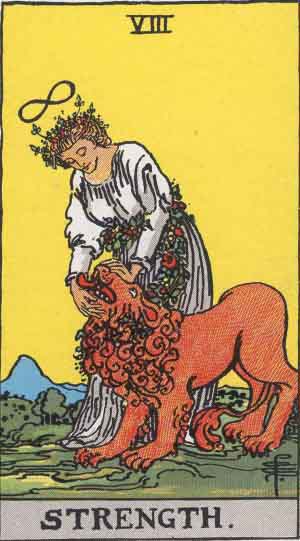 In December, following up on an offer by coach Dave Kaiser, I took the Clifton StrengthsFinder online test. Dave recommended the $9.99 version that gives you your top 5 strengths out of a menu of 34.
In December, following up on an offer by coach Dave Kaiser, I took the Clifton StrengthsFinder online test. Dave recommended the $9.99 version that gives you your top 5 strengths out of a menu of 34.
The StrengthsFinder is a 100+ item test that purportedly feeds back those parts of your personality that most dominate your outlook and behavior.
The test items are not questions, really; they're choices along a spectrum. So, for example, a pair of statements for an item might be "I have a commitment to growth" and "I have a commitment to values." You then select whether either statement Strongly or Somewhat describes you, with Neutral there in the middle.
(For the record, I already know what my values are and I believe I live my life according to them. So I'm not worried about my values. I am more worried about stagnating and not growing. So I strongly identify with a commitment to Growth.)
Knowing one's strengths, one can then theoretically leverage them more consciously and not fight against oneself. Knowing that my strength is Achiever rather than Deliberative, for example, means I can stop beating myself up for not thinking things through and instead take pleasure in action, which probably comes more naturally to me. This echoes an idea from business success literature I was reading 10-15 years ago, to make your strengths stronger rather than spend precious time and energy to shore up your weaknesses. You're better off finding a partner or delegating to someone else those activities that do not play to your strengths.
There are, as there should be, skeptics of this test with well-founded criticisms. These strengths do seem skewed to the business world and isn't there some value in finding, for example, that Empathy may be a weakness? Isn't a sense of humor a strength? But, as the saying goes, "all models are wrong, some models are useful (some of the time)". I chose to look at the test as perhaps providing a perspective on me that I might find useful.
My top 5 (oddly worded) strengths:
- Restorative: I like to fix things, solve problems, and create order out of chaos. This is pretty true, as far as it goes. I could not fix the big communications problems that hit a board I served on, but I could set up a network of volunteers who could efficiently deliver flyers to most houses in the neighborhood. This is probably the most action-oriented, outward-pointing strength I have.
- Intellection: Intellectually active and introspective. Very true.
- Empathy: Sense other people's feelings. Also true, to the point, however, of stifling my own opinion so I don't upset others.
- Input: "Have a craving to know more. Often they like to collect and archive all kinds of information." Yes, yes, a thousand times, yes.
- Learner: Desire to learn and continuously improve (yes). Here's the interesting quote: "The process of learning, rather than the outcome, excites them." This actually helped explain to me why I continue taking banjo lessons even though I have no real desire to perform. I do find the learning process itself fascinating.
So, having received this wonderful information collected before me, what learnings and ideas can I draw from it to solve my life's little problems? (See what I did there, didja, huh, didja?)
Dave gave me some good advice on how to use this information in my goal of starting a side business. Look at past jobs I've had, for example, and make lists of what I liked and didn't like, then map those to the strengths. Chances are that the tasks I most enjoyed relate back to my strengths. Can I use that information to create a business that therefore plays to my strengths?
Or, similarly, pick any thing that I might want to do, and then look at solving the challenges through the lens of my strengths. I would not be a good car salesman, for example. But I would be good at researching, being a subject-matter expert, and perhaps sharing with others who need to know what I've learned.
Good, tidy stuff. But of course, I can't stop ideating and intellecting all over the place. When does a strength become a weakness? As Dave said, when it's misused. My strengths would not help me at cold-calling, for instance.
The strengths would not help me if I'm in the wrong environment. My Learner strength was strongly opposed to the PhD environment I put myself in because I'm a student, not a scholar.
I see a dark side to too much thinking and ruminating, not enough action; too much input, not enough reflection; too much emotion, not enough detachment; too much problem-solving, not enough problem-understanding. (Too much blog writing, not enough money-making? But I digress, which is another of my hidden strengths...)
I'd say the StrengthsFinder did highlight what I indeed feel are the dominant aspects of my personality. What I do, or don't do, with my strengths, is up to me. However, as I daydream about what I might want to start doing later this year, I will be keeping these strengths in mind.
